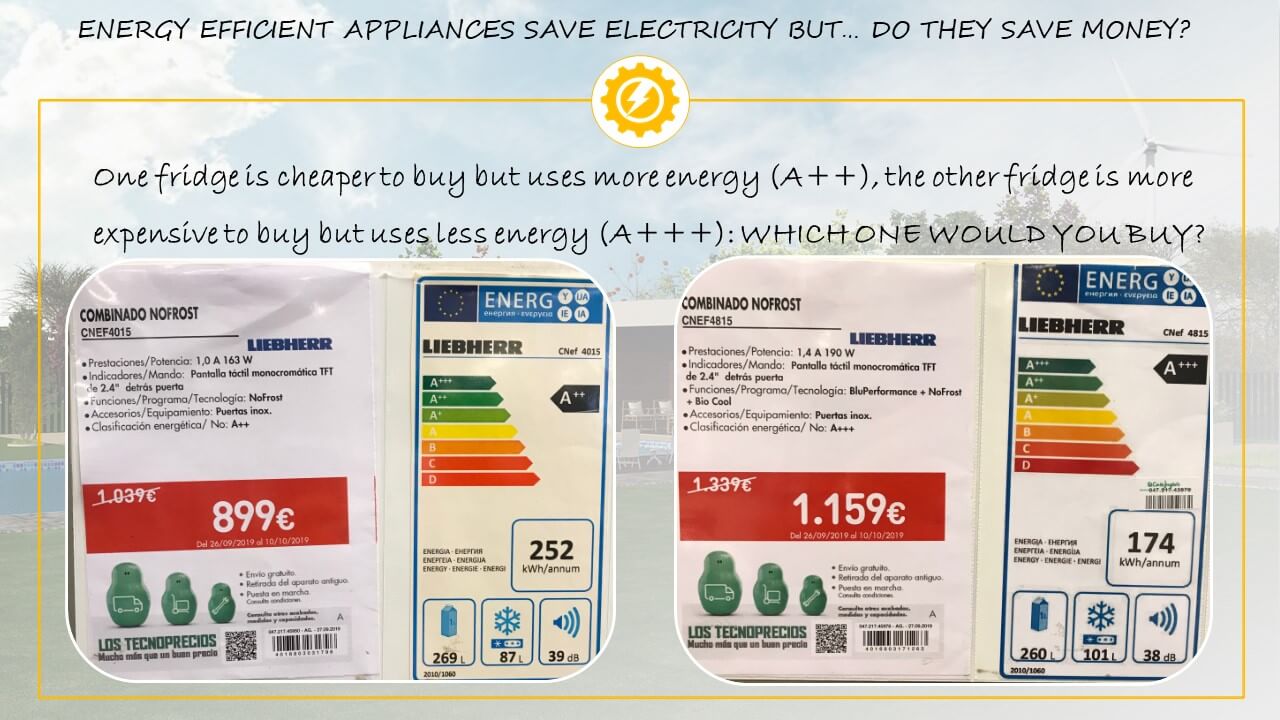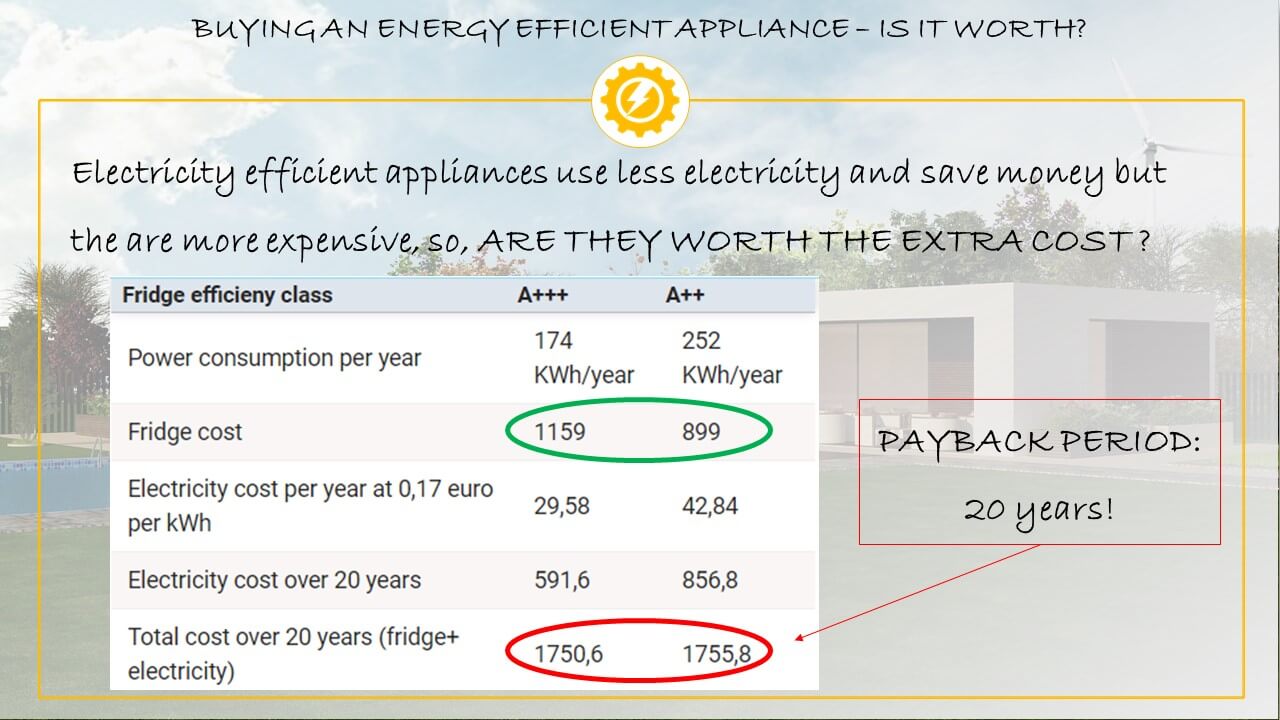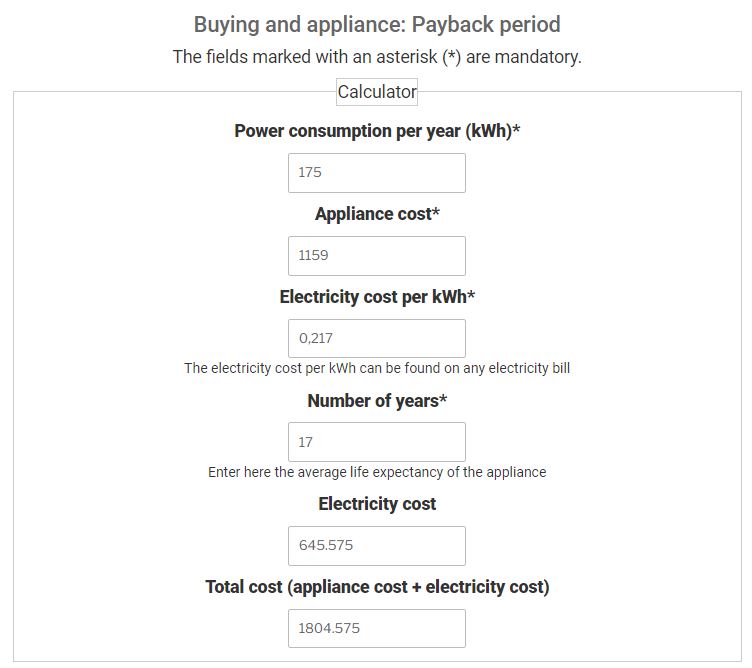An energy efficient appliance uses less power, consumes less electricity and saves us money, there is nothing to argue here…
But, is it worth to pay more money for an appliance that uses less power?
For example, as shown on the image below, if you have to chose between a more expensive but a more efficient appliance (A+++/1159 Euro) or a more economic but less efficient appliance (A++/899 Euro), which one would you choose?

Buying an efficient fridge payback period
The payback period refers to the amount of time that it takes to recover an investment.
The more efficient fridge (A+++) it is 260 Euro more expensive than the less efficient one (A++) but it uses less electricity, only 174 kWh per year, which is significantly less than the 252 kWh per year that the less efficient fridge will be using.
If we want to know if buying the more expensive fridge it is a good decision, we need to find out how long it will take to recover those 260 Euro through electricity savings.

Well, assuming a prize of 0,17 Euro per kWh, it will take us 20 years to recover those additional 260 Euro that it will cost to buy the more expensive fridge.
The problem here is that it is very unlikely that a fridge will last for so long. Therefore, at 0,17 Euro per kWh, buying the more economic but less efficient fridge it is the best choice.
Payback period calculator
Of course, not everyone pays the same prize per kWh so in order to know if buying a more efficient but a more expensive home appliance makes sense, we need to run some calculations.
With the calculator below , anyone can easily calculate the total cost (appliance cost + electricity cost) over time and decide which appliance is the most economic to buy.
As a rule of thumb, the higher it is the cost per kWh, the more makes sense to buy energy efficient appliances. If you don’t know what a kWh is or how much you are paying per kWh, have a look to this post where we explain those concepts.
